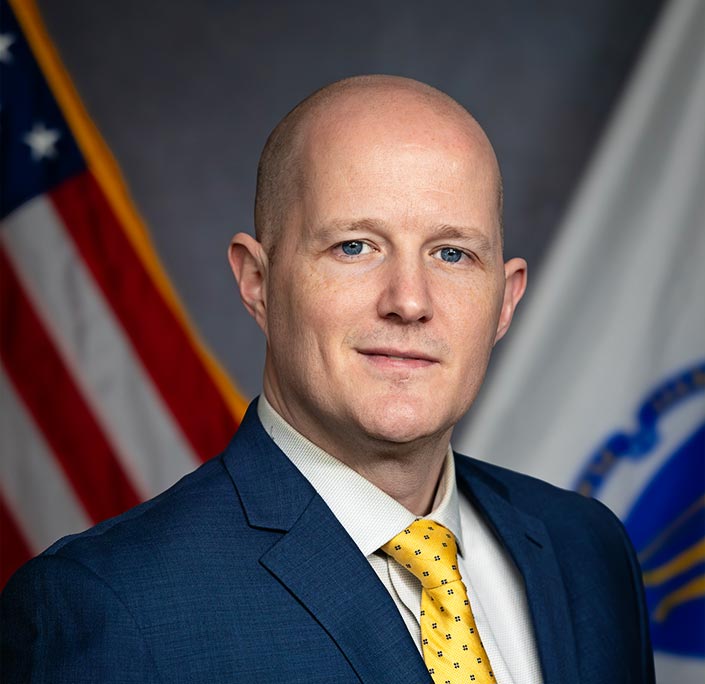Massachusetts Inspector General Jeffrey Shapiro is advising the Cannabis Control Commission to conduct an audit to confirm that cannabis license applicants have made all required payments, after an investigation by his office found the agency may have failed to collect up to $1.73 million in licensing fees over a two-year period.
In a nine-page letter sent to the agency on Thursday, Shapiro said his office launched an investigation into the matter in July, after receiving a hotline complaint alleging the agency was failing to collect required fees relating to prorated license extensions and provisional license fees from current or prospective cannabis business owners.
“I recognize that neither of you held leadership positions at the CCC during that two-year period,” Shapiro wrote in the letter addressed to CCC Executive Director Travis Ahern and Acting Chair Bruce Stebbins, “but as the CCC’s current leaders you must definitively act on the recommendations in this letter.”
Ahern pushed back against the dollar amount named by Shapiro, saying it was a misinterpretation, but said CCC will work with the inspector general’s office to address concerns, according to a written statement Ahern sent to WBJ.

“The Cannabis Control Commission continues to meet with the Office of the Inspector General about the issues outlined in the letter released today,” Ahern wrote. “A more robust response will be provided to the OIG within the required 30 days to detail the steps we have already taken to remedy these concerns, and the commission will continue to work collaboratively with the Legislature on the agency’s financial needs identified in the OIG’s letter. We also appreciate the OIG’s important clarification that zero fraud has occurred as it relates to uncollected licensing fees. The commission takes its responsibility to collect licensing fees and fines seriously.”
Shapiro described the ordeal as an egregious operational breakdown at the agency. He wrote the investigation showed CCC senior management at the time failed to adequately oversee core operations and commissioners were unaware their directives went unimplemented.
After a review of CCC records, the IG office found CCC staff members did not take action on an August 2022 vote by the commissioners to collect prorated fees on license extensions, resulting in more than $550,000 in foregone revenue.
The IG letter noted CCC informed the office in February it had collected $320,681 of that amount after becoming aware of the problem sometime in 2024. Ahern’s statement said $170,000 of that money is outstanding as of last week, admitting some of that money may not be collectable if businesses who owe the fees have closed.
The IG letter states for two years CCC did not collect more than 120 provisional license application fees, which at one point may have been as much as $1.2 million. Shapiro said a full audit would be necessary to determine the exact amount of uncollected provisional fees.
“While the OIG’s investigation did not find fraud, it does suggest poor business practices and oversight,” the letter reads.
Ahern wrote in his statement $1.2 million in uncollected provisional application fees referenced in the OIG’s letter is subject to misinterpretation, noting fees are only due if the applicants choose to acquire a final license.
Beyond the failure to collect fees as required by state regulations, the inspector general’s investigation found evidence of internal dysfunction, as CCC employees granted license extensions without the authority to do so and failed to implement actions required by an August 2022 vote by commissioners to collect prorated fees.
Shapiro recognized current staff took appropriate action to bring the matter regarding uncollected fees to the commissioners’ attention and began the process of collecting missing revenue. However, he wrote the failure to collect fees is a significant problem.
“Viewed most narrowly, this operational deficiency occurred because licensing division officials failed to update the CCC’s payment processing system to handle extensions for existing licensed operators and to bill provisional licensees for renewals,” Shapiro wrote. “In both instances, those officials did not bring the matters to the attention of their supervisors or the commission. Further, the former executive director inappropriately delegated a responsibility to a division that he knew or should have known did not have the capacity to execute the directive on their own.”

Shapiro added the investigation found CCC staffers withheld information from commissioners, as senior managers chose to forego implementing policies approved by the commission and commissioners themselves did not hold staff accountable.
In October, current and former CCC staffers told WBJ the agency was ripe with dysfunction and infighting.
Meghan Dube, a staffer who shared her negative experiences with then-Acting Executive Director and current Chief People Officer Debbie Hilton-Creek, told WBJ she felt CCC had little hope for improvement at the agency. In January, Dube was suspended by the agency, a move she claimed was a result of her whistleblowing.
Ahern’s statement did not discuss accusations levied at staff in the OIG’s letter, citing a policy of not commenting on personnel matters.
The press release announcing the inspector general’s findings was released in the midst of an agency meeting to discuss proposed social consumption regulations, which have been years in the making.
Eric Casey is the managing editor at Worcester Business Journal, who primarily covers the manufacturing and real estate industries.

